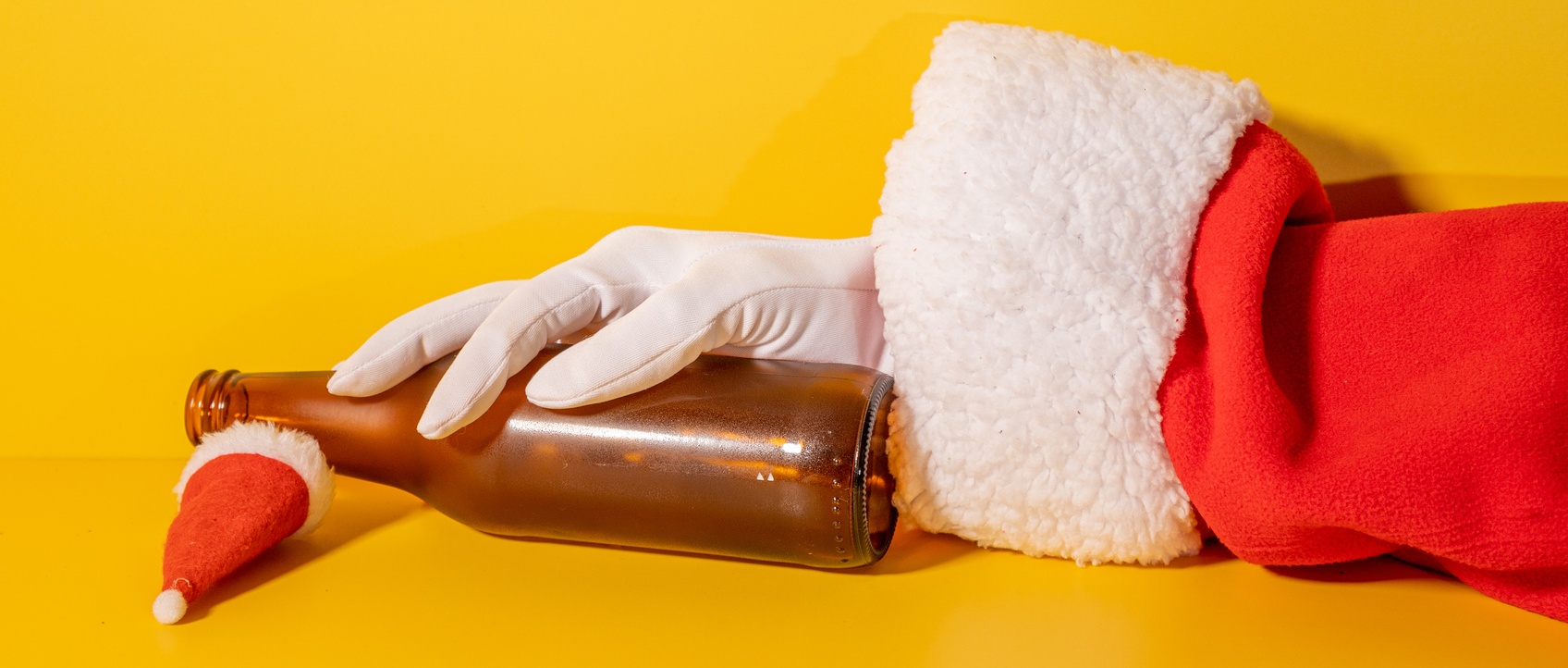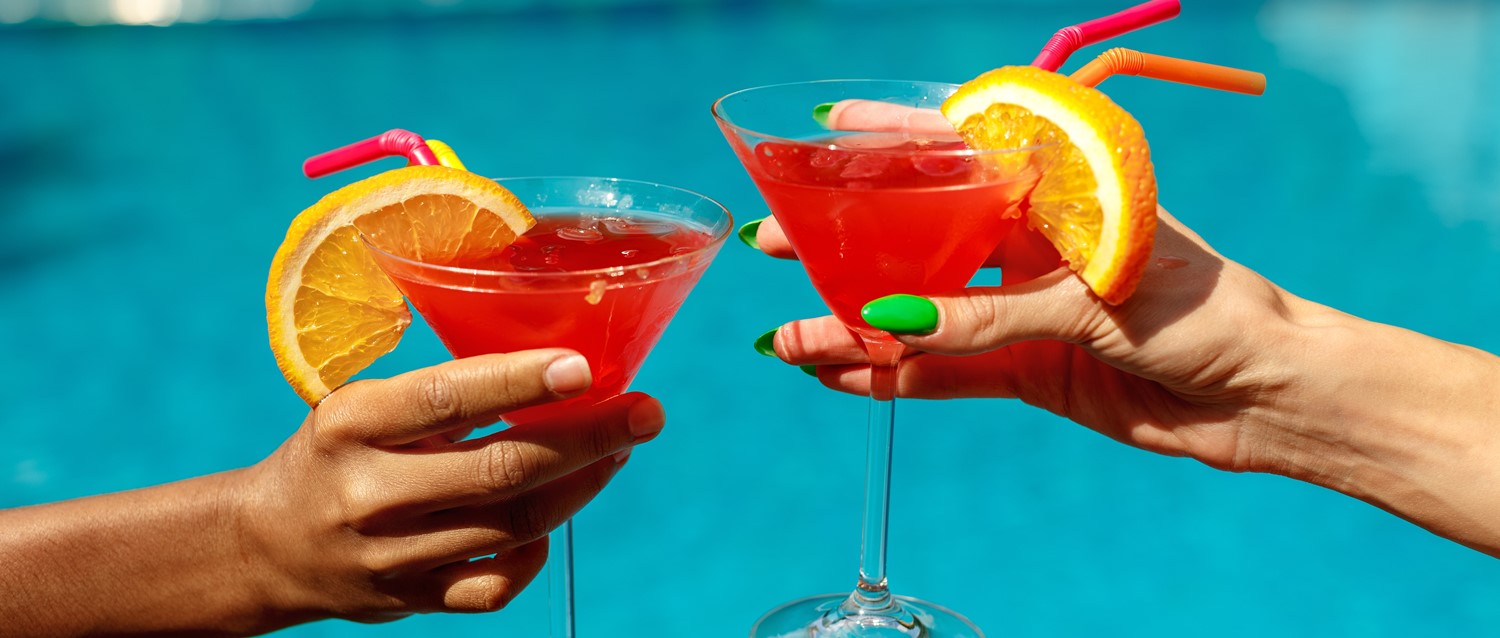
Ketone drinks: a buzzy and safe alcohol-alternative?
Peer reviewed by Dr Krishna Vakharia, MRCGPAuthored by Amberley DavisOriginally published 21 Sept 2023
Meets Patient’s editorial guidelines
- DownloadDownload
- Share
- Language
- Discussion
- Audio Version
Ketone drinks are being marketed as alcohol-free booze that can give you a similar buzz to drinking two or three glasses of beer or wine. But what does the science say? Before you invest, we explain what ketones are, explore their proven health benefits, and ask whether TikTok anecdotes and marketing claims are overshadowing the facts when it comes to the alcohol-free buzz.
In this article:
Video picks for Alcohol advice
Continue reading below
What are ketone drinks?
In recent years, alcohol-free drinks have become a popular niche in the drinks market. These promise to remind consumers of their favourite boozy drinks while they avoid the hangovers and health risks of real alcohol.
What most of these drinks have never promised is the alcoholic buzz - the sensation of getting tipsy. Now, brands selling ethanol-free drinks containing a natural chemical called ketones are claiming that these non-alcoholic beverages can mimic this feeling - and many TikTok users are reporting it works.
Yet it's only recently that ketone drinks have been marketed as an alcohol replacement. In fact, they have received most attention as an energy source that doesn't cause spikes in blood sugar, unlike the energy we get from carbohydrates. They've also been promoted for their potential in improving athletic performance.
What are ketones? - the basics
Back to contentsKetones, or ketone bodies, are a type of chemical that your body naturally produces in the liver. Ketones provide you with energy when you're fasting, not eating as many carbs - your main energy source from food - or when doing a lot exercise, when you quickly use up energy stores.
Ketone drinks contain an artificial version of ketones, known as exogenous ketone supplements. They are designed to give you the benefits of ketones without restricting calories or carbs. They come in two forms - ketone salts, which are often powders, and ketone esters, usually liquids.
Continue reading below
Health benefits of ketones
Back to contentsIt's thought that supplementing artificial ketones can benefit some people - in the right circumstances. Exogenous ketone drinks, by directly elevating your blood ketone levels, can act as an alternative fuel source for the brain and muscles. This is especially beneficial during periods of low carbohydrate intake.
Other known benefits:
Support during athletic performance - athletes might benefit from the immediate energy that ketone drinks provide, especially during prolonged endurance events where carbohydrate stores might be used up1.
Appetite suppression - ketone drinks, by aiding ketosis, can lower levels of the hunger hormone ghrelin2. However, while ketone drinks can support a ketogenic diet (keto diet) in achieving weight loss, people shouldn't solely rely on them. The body should naturally produce ketones through dietary practices.
Enhanced brain function - some studies indicate that ketone drinks might support brain function3. Like muscles, the brain can also use ketones as an energy source, potentially offering mental clarity.
Research into ketone drinks is ongoing, and evidence regarding appetite suppression and brain function is not conclusive - especially when it comes to studies involving humans4. Bear this in mind, as high-quality ketone drinks can be expensive.
How safe are ketone drinks?
Back to contentsAlthough generally considered safe, there are some circumstances where ketone drinks may cause problems.
Side effects and considerations:
Not a replacement for a balanced diet - consuming ketone drinks does not replace the need for a well balanced diet. Your body needs various nutrients from diverse food sources.
Gastrointestinal discomfort - some people have reported stomach issues, such as nausea or stomach cramps, after consuming ketone drinks.
Risk of Diabetic Ketoacidosis (DKA)
A major concern, especially for those with type 1 diabetes is diabetic ketoacidosis (DKA). This is a serious condition where the body produces too many ketones, making the blood acidic. People with type 1 diabetes should discuss these drinks with their doctor if they are considering taking them. But as a general rule, they could cause more harm than good.
People who haven't been diagnosed with type one diabetes should also be wary of the early symptoms, which include feeling very thirsty and peeing more than usual. According to Diabetes UK, people with type 2 diabetes and who use insulin should also look out for the signs of DKA.
Continue reading below
Ketones - an alternative to alcohol?
Back to contentsAlcohol can affect our mood and behaviour. This can be bad for our health - especially when it comes to prolonged and excessive drinking - but many people who cut down on alcohol miss the buzz they feel from two or three drinks.
The TikTok trend for testing ketone drinks, in their appealing range of alcohol flavours like G&T, beer and Piña Colada, has led to mixed results and confusion. Some report feeling a mild but enjoyable sensation after a few cans, while others felt no different. It's also worth bearing in mind that many of these popular flavours contain added sugars, which are linked to poor heart health and other problems associated with weight gain.
The evidence - jury's out
When it comes to the science, the reality is there are very few human studies exploring how ketone drinks can make people feel. Instead, most explore ketones for athletic performance, where mood effects have sometimes been reported in limited detail. For example, one study of cycling performance noted some participants experienced low levels of euphoria5.
While ketone drinks may give our brains and muscles a boost, these effects are likely to feel different to drunkenness. For example, they appear to reduce exhaustion after exercise6, and may have a therapeutic effect on people with some psychiatric diseases7.
Science hasn't proved that ketone drinks can mimic the effects of alcohol. Rather, alcohol and ketones have different effects on mood, behaviour, and brain function. While alcohol has a psychoactive effect, ketone drinks provide energy.
Sifting through the confusion
Research into ketones and cognitive performance is not necessarily proof that ketones make a great booze-free drink - even if the alcohol-free drink brands cite these studies as proof.
There are also important differences between the effects of ketones your body naturally produces and ketone drinks. There's anecdotal evidence that the initial stage of fasting or a low-carb diet, which causes your body to produce ketones, leads some people to experience mild euphoria8. In these cases, it's likely that eating less sugar and fats and having more stable blood sugar levels plays a role - something that doesn't apply with ketone drinks if your diet stays the same.
Should I buy ketone drinks?
It's not clear if ketone drinks will give you an alcohol-like buzz. No matter your reasons for drinking them, having little or no alcohol is healthier for you.
Like any nutritional supplement or practice, it's a good idea to check with a healthcare provider or nutritionist before incorporating new supplements into your routine.
Further reading
Back to contentsUniversity of Oxford: Ketone drink gives competitive cyclists a boost by altering their metabolism.
Stubbs et al: A ketone ester drink lowers human ghrelin and appetite.
Alzeimer's Association: A ketogenic drink improves cognition in mild cognitive impairment: Results of a 6-month RCT.
Pendergrass and Rafi: Exogenous ketones, ketone esters and ketone salts.
Shaw et al: The effect of 1,3-butanediol on cycling time-trial performance.
Evans and Egan: Intermittent running and cognitive performance after ketone ester ingestion.
Patient picks for Alcohol advice

Healthy living
How to drink less over Christmas and the New Year
Whether you're going to parties with friends or colleagues, it's easy to overdo it with alcohol over Christmas and the New Year. So how can you manage your drinking throughout the festive period?
by Lynn Stephen

Healthy living
Drinking in the sun: a dangerous cocktail
Picture the scene - it's a hot, sunny day and you're strolling through the park, or perhaps along a beach. Chances are, you'd see people drinking alcohol with their friends. However, did you know that drinking in the sun can come with a number of risks?
by Emily Jane Bashforth
Continue reading below
Article history
The information on this page is peer reviewed by qualified clinicians.
21 Sept 2023 | Originally published
Authored by:
Amberley DavisPeer reviewed by
Dr Krishna Vakharia, MRCGP

Ask, share, connect.
Browse discussions, ask questions, and share experiences across hundreds of health topics.

Feeling unwell?
Assess your symptoms online for free
Sign up to the Patient newsletter
Your weekly dose of clear, trustworthy health advice - written to help you feel informed, confident and in control.
By subscribing you accept our Privacy Policy. You can unsubscribe at any time. We never sell your data.